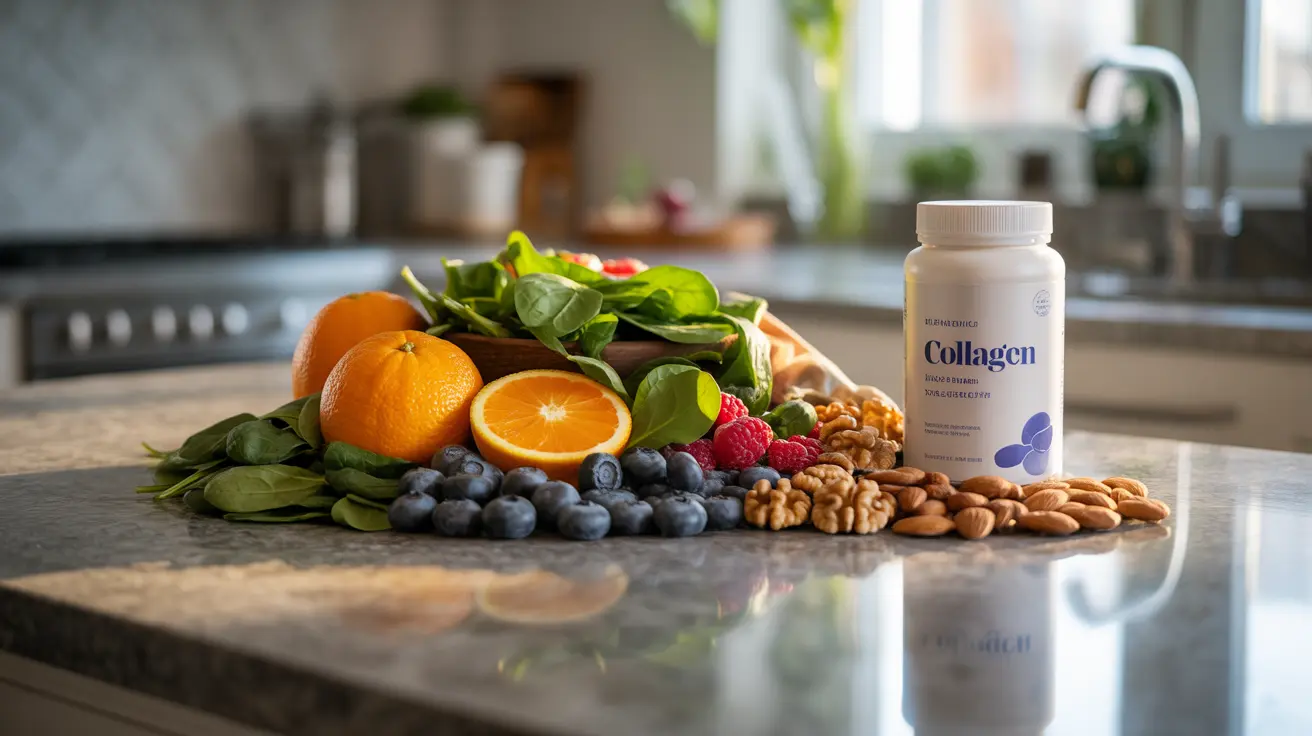Collagen is the most abundant protein in your body, playing a crucial role in maintaining skin elasticity, joint health, and overall tissue structure. As we age, our natural collagen production decreases, leading many people to seek effective ways to boost their collagen levels. This comprehensive guide explores both natural methods and supplementation options to help you increase your collagen production effectively.
Understanding how to increase collagen can help you maintain younger-looking skin, stronger joints, and better overall health. Whether through dietary changes, lifestyle modifications, or supplementation, there are multiple evidence-based approaches to enhance your body's collagen levels.
Natural Ways to Boost Collagen Production
Your body has the remarkable ability to produce collagen naturally, but it needs the right building blocks to do so effectively. Here are several natural approaches to boost your collagen production:
Collagen-Boosting Foods
Incorporating specific nutrients through your diet can help stimulate collagen production:
- Protein-rich foods (chicken, fish, eggs)
- Vitamin C-rich fruits and vegetables (citrus fruits, berries, bell peppers)
- Zinc-containing foods (nuts, seeds, legumes)
- Copper-rich foods (shellfish, nuts, seeds)
- Bone broth
- Garlic and onions (rich in sulfur)
Essential Vitamins and Minerals
Several key nutrients play vital roles in collagen synthesis:
- Vitamin C: Essential for collagen formation
- Vitamin A: Supports overall skin health
- Vitamin E: Protects existing collagen
- Zinc: Activates proteins necessary for collagen synthesis
- Copper: Helps form collagen fibers
Lifestyle Habits That Support Collagen Production
Your daily habits can significantly impact your body's ability to produce and maintain collagen:
- Protect your skin from sun damage
- Get adequate sleep
- Stay hydrated
- Manage stress levels
- Exercise regularly
- Avoid smoking and excessive alcohol consumption
Understanding Collagen Supplements
Collagen supplements have gained popularity as a direct way to increase collagen levels. These supplements come in various forms:
Types of Collagen Supplements
- Hydrolyzed collagen peptides
- Marine collagen
- Bovine collagen
- Chicken collagen
How to Choose the Right Supplement
When selecting a collagen supplement, consider:
- Source quality
- Type of collagen
- Additional ingredients
- Third-party testing
- Dosage recommendations
Frequently Asked Questions
What are the best foods and vitamins to increase collagen naturally in my skin?
The best foods for natural collagen production include protein-rich sources like fish, chicken, and eggs, combined with vitamin C-rich foods such as citrus fruits, berries, and leafy greens. Essential vitamins include Vitamin C, A, and E, along with minerals like zinc and copper.
How effective are collagen supplements for improving skin elasticity and reducing wrinkles?
Research suggests that collagen supplements can improve skin elasticity and reduce visible signs of aging. Studies have shown improvements in skin hydration and wrinkle depth after 8-12 weeks of regular supplementation, though individual results may vary.
What lifestyle habits help the body make more collagen and prevent collagen loss?
Key lifestyle habits include protecting your skin from UV damage, getting adequate sleep, staying hydrated, exercising regularly, and avoiding smoking and excessive alcohol consumption. These practices help preserve existing collagen and support new collagen production.
Are there any risks or side effects from taking collagen supplements?
While collagen supplements are generally considered safe, some people may experience mild digestive issues, mild allergic reactions, or an unpleasant taste. Those with specific allergies should check the source of their collagen supplements carefully.
What's the difference between marine collagen and other sources, and which is better for my skin?
Marine collagen is derived from fish and has smaller peptide particles, potentially making it more bioavailable than other sources. While both marine and bovine collagen can be effective, marine collagen may be better absorbed and is often preferred by those who avoid beef products. The best choice depends on individual preferences and dietary restrictions.
Remember, improving collagen levels is a holistic process that combines proper nutrition, lifestyle changes, and potentially supplementation. Consider consulting with a healthcare provider before starting any new supplement regimen.




